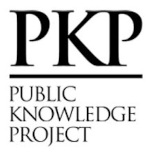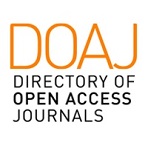El design estratégico aplicado a startups internas de una empresa no tecnológica
DOI:
https://doi.org/10.29147/datjournal.v7i2.621Palabras clave:
Cultura de la innovación, Design Estratégico, Startups InternasResumen
Este artículo tiene como objetivo presentar el design estratégico del marco consolidado de Startup Teams estructurado a lo largo del estudio de caso exploratorio con pruebas realizadas con empleados de SEBRAE/PE. Los Startup Teams son equipos formados por empleados de la institución, actuando a la manera de las startups (agilidad, co-creación, prototipado constante, modelos de negocio escalables) asociadas a un proceso de innovación abierta. Este framework permite tener una visión clara de todo el proceso de aprendizaje basado en proyectos y sus impactos en los conocimientos, habilidades y actitudes de los empleados de la institución, lo que puede servir de base para que otras empresas lo utilicen en sus proyectos de innovación.
Descargas
Citas
BURGELMAN, R. A. A Process Model of Internal Corporate Venturing in the Diversified Major Firm. Administrative Science Quarterly, v.28, n. 2, p. 223-224. DOI: https://doi.org/10.2307/2392619
BROWN, T. Design Thinking – Uma metodologia poderosa para decretar o fim das velhas ideias. São Paulo: Alta Books, 2017.
CAROLI, P. Lean Inception: Como alinhar pessoas e construir o produto certo. São Paulo: Editora Caroli, 2018.
EDISON, H. A Conceptual Framework of Lean Startup Enabled Internal Corporate Venture. In: ABRAHAMSSON, P; CORRAL, L.; OIVO, M.; RUSSO, B. Product-Focused Software process improvement. Lecture Notes in Computer Science, v 9459. New York: Springer, 2015. DOI: https://doi.org/10.1007/978-3-319-26844-6_46
HENRY, E. Fundamentals of software startups: essential engineering and business aspects. Alemanha: Springer, 2020.
KANE, G. C.; PHILLIPIS, A. N.; COPULSKY, J. R.; ANDRUS, G. R. The technology fallacy: how people are the real key to digital transformation. Massachusetts: MIT Press, 2019.
LEPPÄNEN, M.; HOKKANEN, L. Four patterns for internal startups. ACM Digital Library. [s.l.] n. 5 p. 1-10,2015. DOI: https://doi.org/10.1145/2855321.2855327
MERONI, A. Strategic Design: Where are we now? Reflection around the foundations of a recent discipline. Strategic design research journal, v.1, n.1, 2008, p. 31-38. DOI: https://doi.org/10.4013/sdrj.20081.05
PORTO DIGITAL. Proposta de Trabalho: Encomenda Tecnológica. Núcleo Gestor do Porto Digital. Recife, 2020.
PORTO MARINHO. Relatório Técnico da Primeira Entrega. Contrato SEBRAE/PE 70.2019. Recife, 2019.
PORTO MARINHO. Relatório Técnico da Primeira Entrega do framework Startup Teams Rebooted. Recife, 2022.
RIES, E. A Startup Enxuta: como os empreendedores atuais utilizam a inovação contí¬nua para criar empresas extremamente bem sucedidas. Rio de Janeiro: LeYa, 2012.
RIES, E. O estilo Startup. Portugal: LeYa, 2017.
SEBRAE. Planejamento Sebrae Pernambuco 2020-2023: O Sebrae e o futuro. SEBRAE: Per¬nambuco, 2019.



























